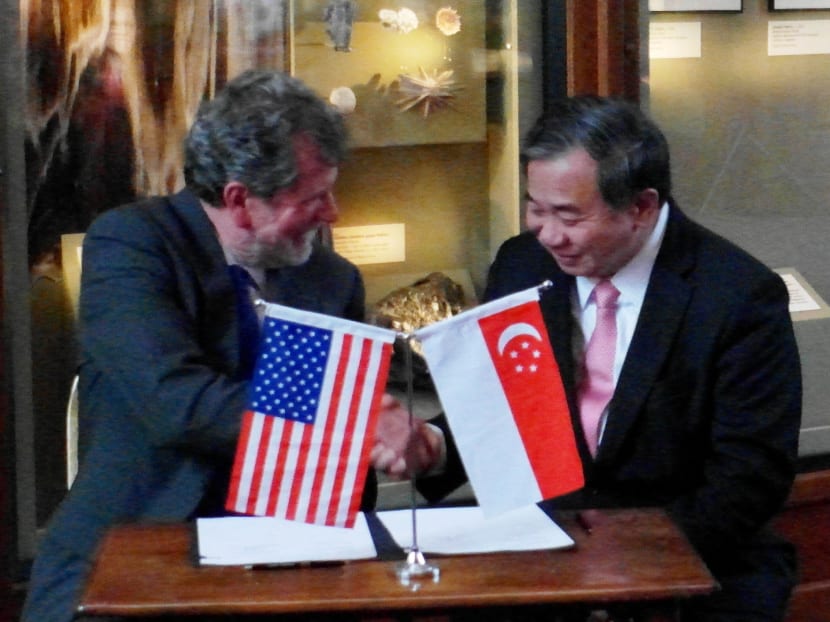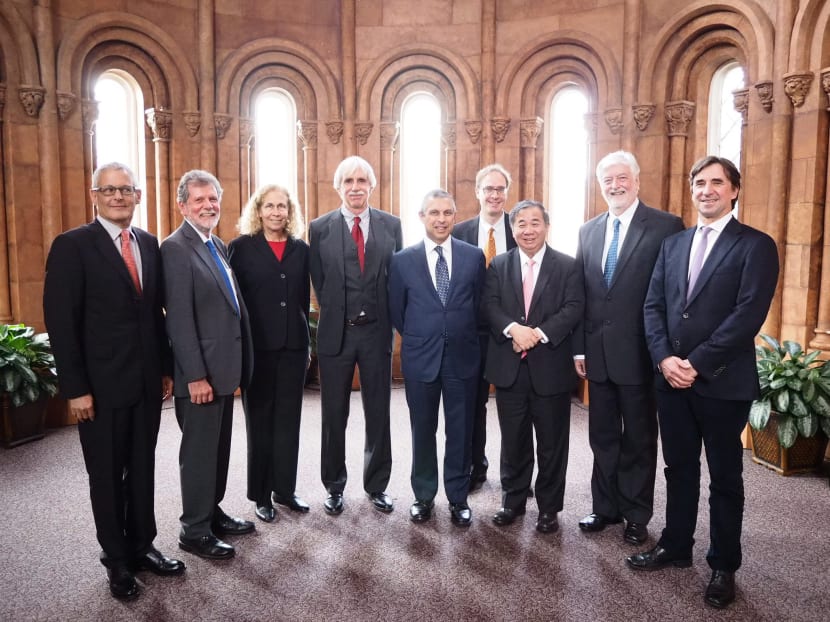NTU partners US Smithsonian Institution to research tropical ecology
SINGAPORE — To advance research in tropical ecology, Nanyang Technological University (NTU) has partnered with the world’s largest museum and research complex in the United States, the Smithsonian Institution. They will collaborate on educational and research efforts in the areas of tropical forest, marine ecology and environmental change in Asia.


SINGAPORE — To advance research in tropical ecology, Nanyang Technological University (NTU) has partnered with the world’s largest museum and research complex in the United States, the Smithsonian Institution. They will collaborate on educational and research efforts in the areas of tropical forest, marine ecology and environmental change in Asia.
This collaboration is the Smithsonian Institution’s first formal research agreement in Asia. NTU will be established as the Asian scientific hub for the Smithsonian’s Forest Global Earth Observatories programme, a global network of more than 60 tropical and temperate forest plots in 24 countries where scientists examine forest function and diversity.
A Memorandum of Understanding was signed today (March 17) by NTU Provost Professor Freddy Boey and Smithsonian’s interim Under Secretary for Science Dr W John Kress in Washington, DC. Singapore’s Ambassador to the US Ashok Kumar Mirpuri was the Guest-of-Honour at the event.
Describing the partnership as a milestone for Singapore, Prof Boey said: “Together with the Smithsonian Institution, our combined research efforts will be instrumental in advancing forest and marine ecological science, to better understand nature and the world around us.
“The discovery of such knowledge will allow scientists to tackle the huge challenges we have today, such as climate change and environmental degradation.”
NTU’s new Asian School of the Environment will be the main partner to the Smithsonian Institution, supported by the university’s research centres - Earth Observatory of Singapore, the Singapore Centre on Environmental Life Sciences Engineering and NTU’s Complexity Institute. A joint professorship between the two organisations will also be set up, housed at the Asian School of the Environment.
Associate Professor Charles Martin Rubin, Chair of the Asian School of Environment, said: “We are looking to educate and train both top notch scientists and also students, to better understand the environment in the Asian tropical region which is not that well studied yet.
“We want to train researchers in the natural sciences to pay attention to the interaction between societies and the environment, and ways to promote adaptive governance of social-ecological systems.”
Professor John Stephen Lansing, co-director of NTU’s Complexity Institute and a professor in the Asian School of Environment highlighted the need to find solutions to problems like deforestation, which not only affects air quality in Singapore but “also leads to habitat loss for wild animals, triggering the spread of new infectious diseases from animals to humans”.
The Smithsonian’s Dr Kress said the partnership with NTU will open new avenues for Smithsonian scientists in Asia. He said: “Together, NTU and Smithsonian scientists will make discoveries that neither could accomplish alone.”






